Changing Their Minds?
Changing Their Minds?
Donald Trump and Presidential Leadership
GEORGE C. EDWARDS III
UNIVERSITY OF CHICAGO PRESS
CHICAGO AND LONDON
The University of Chicago Press, Chicago 60637
The University of Chicago Press, Ltd., London
2021 by The University of Chicago
All rights reserved. No part of this book may be used or reproduced in any manner whatsoever without written permission, except in the case of brief quotations in critical articles and reviews. For more information, contact the University of Chicago Press, 1427 E. 60th St., Chicago, IL 60637.
Published 2021
Printed in the United States of America
30 29 28 27 26 25 24 23 22 21 1 2 3 4 5
ISBN -13: 978-0-226-77550-0 (cloth)
ISBN -13: 978-0-226-77581-4 (paper)
ISBN -13: 978-0-226-77564-7 (e-book)
doi: https://doi.org/10.7208/chicago/9780226775647.001.0001
Library of Congress Cataloging-in-Publication Data
Names: Edwards, George C., author.
Title: Changing their minds? : Donald Trump and presidential leadership / George C. Edwards III.
Description: Chicago : University of Chicago Press, 2021. | Includes bibliographical references and index.
Identifiers: LCCN 2020043067 | ISBN 9780226775500 (cloth) | ISBN 9780226775814 (paperback) | ISBN 9780226775647 (ebook)
Subjects: LCSH: Trump, Donald, 1946 | PresidentsUnited States. | Political leadershipUnited States. | Executive powerUnited States. | Executive-legislative relationsUnited States.
Classification: LCC E 913 . E 39 2021 | DDC 973.933092dc23
LC record available at https://lccn.loc.gov/2020043067

This paper meets the requirements of ANSI/NISO Z39.48-1992 (Permanence of Paper).
Contents
In December 2016, a month before Donald Trump took office, I wrote a piece for the Washington Post predicting that despite his talent for self-promotion, the new president would not succeed in persuading the public to support his policies. His base, approximately 40 percent of the public, would stand by him, but those less inclined to agree with him would not. In other venues, I also predicted the president would not succeed in winning support for his legislative program despite his extensive experience as a negotiator.
Why did I reach these conclusions, even before Trumps inauguration? My predictions were based on two pillars. First, an analysis of the presidents strategic position revealed that there was little potential for creating opportunities for policy change. Neither the public nor Congress was open to persuasion. Second, presidents, no matter how politically skilled, cannot overcome their strategic positions. They cannot create opportunities for change. Instead, they are dependent on the opportunities already present in their environments.
I have fleshed out this argument in a series of books, articles, and essays. Donald Trump provides a fascinating test of my theory of presidential leadership, one I could not pass up. In this volume, I seek to explain the presidents level of leadership success, first by focusing on the possibilities of success in his environment and, second by carefully examining his performance in office. I find that Trump, like all other presidents, well illustrates the impact of the context in which he is attempting to govern and the limitations of attempts at persuasion. I also conclude that the president was ineffective as a leader and failed to take advantage of the opportunities he did have.
Special thanks go to Chuck Myers, one of the best editors in the business with whom it is a pleasure to work. Mary Tong did a fine job as copy editor and Mary Corrado efficiently guided the book through the production process. Alicia Sparrow did an excellent job on manuscript preparation. I am grateful to them all. I am also indebted to Nuffield College at Oxford and the Department of Political Science at Texas A&M University for providing supportive research environments. For parts of this book, I relied heavily on data from the Roper Center for Public Opinion Research at Cornell, a great national resource. My greatest debt, as always, is to my wife, Carmella, who creates the conditions conducive to writing and who makes all the effort worthwhile.
Trump as a Test
Much to the surprise of most political commentators and even the candidate himself, Donald Trump was elected president of the United States. The New York real estate mogul ran an unusual campaign and possessed a unique background for a chief executive. He was a true nonpareil. No one has ever arrived at the presidency with so little experience in politics, government, or the military. He never served in any public office and was poorly informed about issues. Nevertheless, he took the oath of office as president on January 20, 2017.
Trump provides an intriguing case for the study of presidential leadership. Despite his lack of conventional credentials for the presidency, he came to the White House with two sets of skills that seemed relevant to leading the people and their government. First, he possessed well-honed promotional talents, abilities sharpened over a lifetime of marketing himself and his brand, including a stint as a successful reality television star. Second, Trump boasted of being an able negotiator. Announcing his candidacy for the presidency on June 16, 2015, he proclaimed, If you cant make a good deal with a politician, then theres something wrong with you. Youre certainly not very good. And thats what we have representing us. They will never make America great again. They dont even have a chance... our country needs a truly great leader now. We need a leader that wrote The Art of the Deal. Thus, the future president claimed that he was uniquely qualified to lead the country, unite the public, and overcome gridlock in Congress.
To accomplish these goals would require successful persuasion. Was this talented self-promoter able to win public support for his initiatives? Was this experienced negotiator able to overcome polarization in Congress and obtain agreement on his proposals? Was Donald Trump an effective leader?
Answering these questions is the focus of this book. First, however, we need to clarify some key concepts.
Leadership
Leadership may be the most commonly employed idea in politics. Yet it is an elusive concept. According to James MacGregor Burns, Leadership is one of the most observed and least understood phenomena on earth. Writers and commentators employ the term leadership to mean just about everything a person who occupies what we often refer to as a position of leadership doesor should do.
When we define a term so broadly, however, it loses its utility. The Constitution and federal laws invest significant discretionary authority in the president. Making decisions, issuing commands, and implementing policy are important, and doing them well requires courage, wisdom, and skill. At times, the exercise of unilateral authority may result in historic changes in the politics and policy of the country.
In the extreme case, the president can launch a nuclear attack at his discretion. The consequences would be vast. Most people would not view such an act as one of leadership, however. In exercising discretionary authority, the president, in effect, acts alone. It is not necessary for him to lead anyone to do something. At its core, decision-making represents a different dimension of the job of the chief executive than obtaining the support of others.

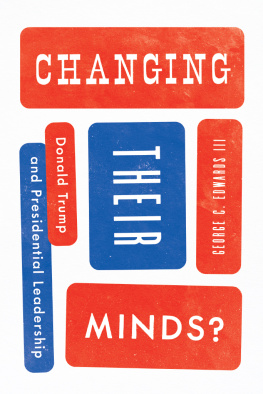

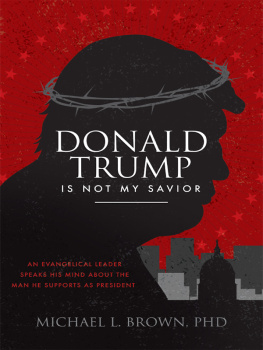
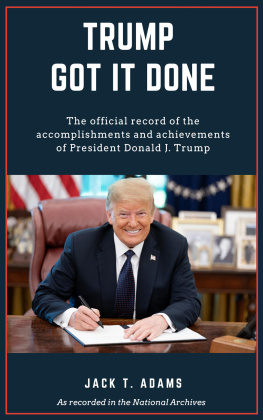

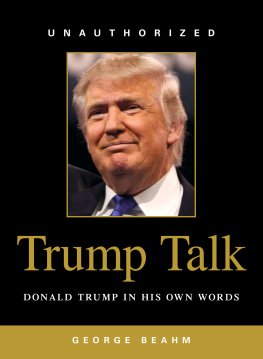
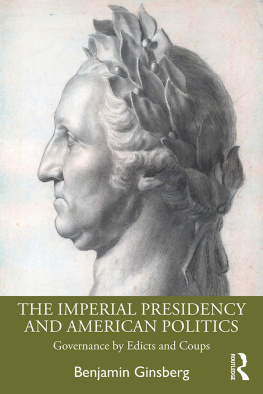
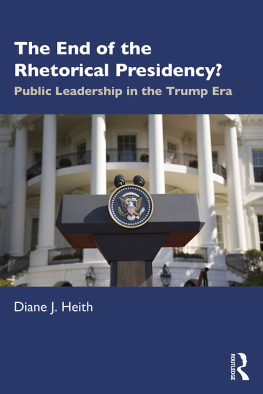
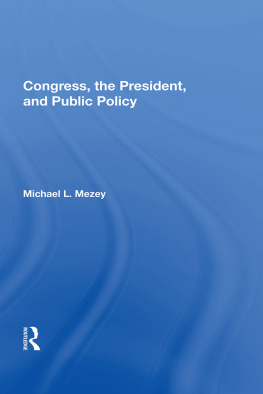
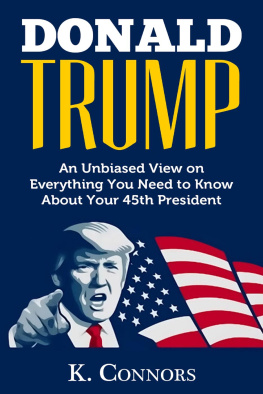
 This paper meets the requirements of ANSI/NISO Z39.48-1992 (Permanence of Paper).
This paper meets the requirements of ANSI/NISO Z39.48-1992 (Permanence of Paper).